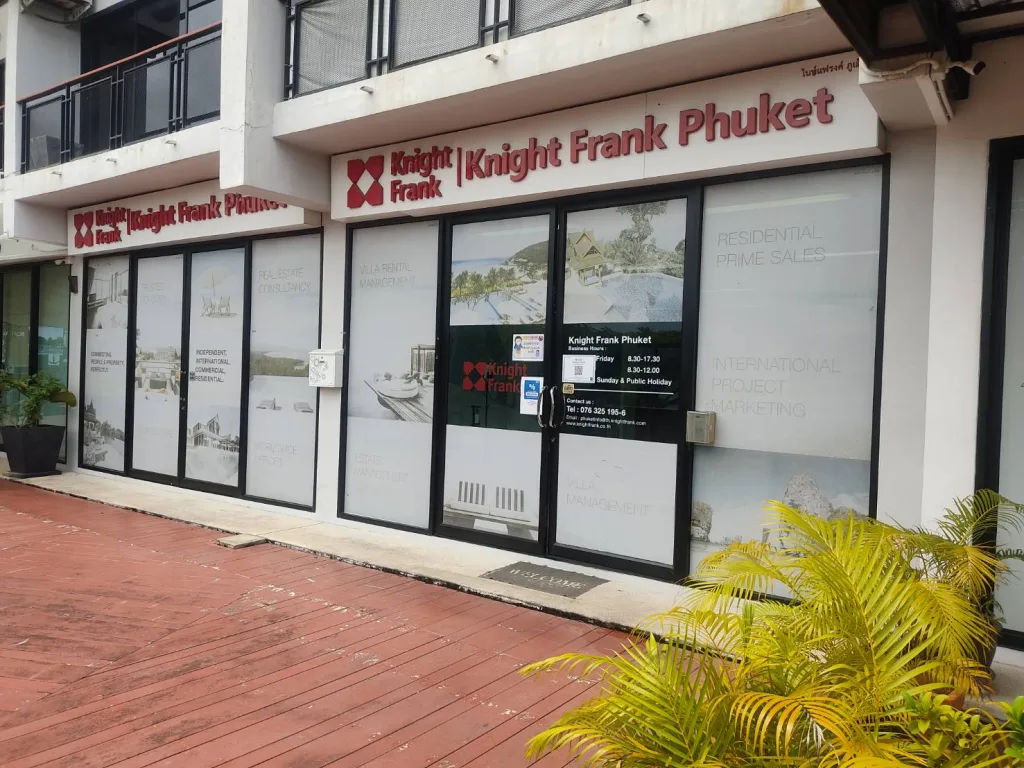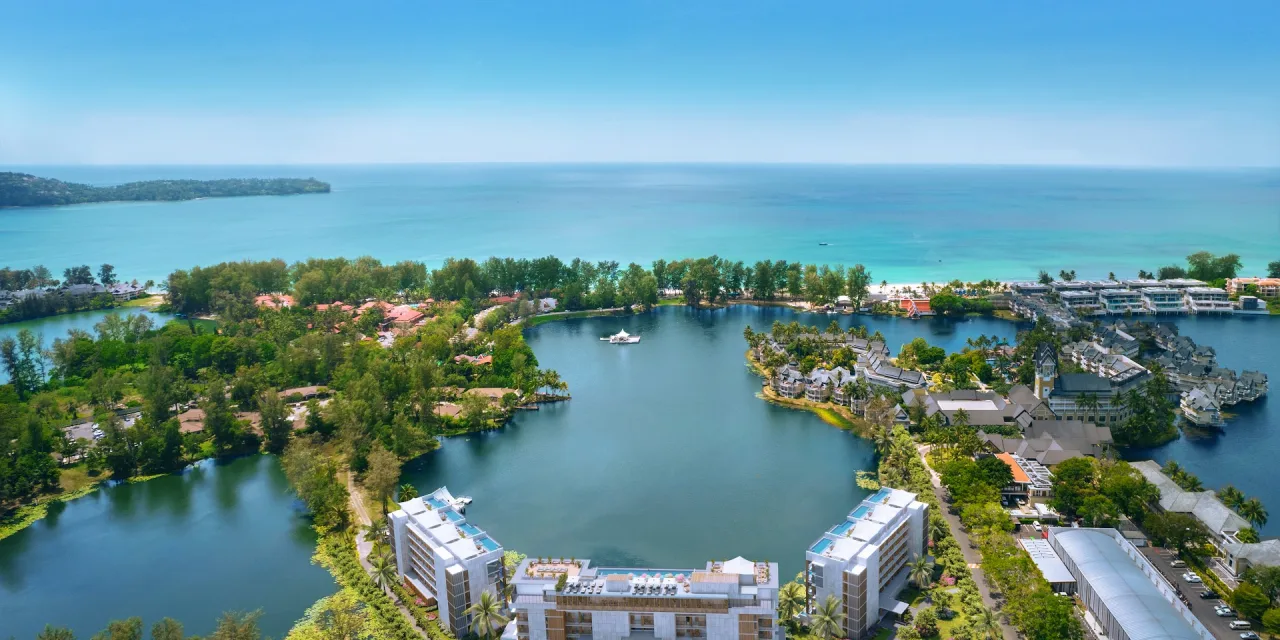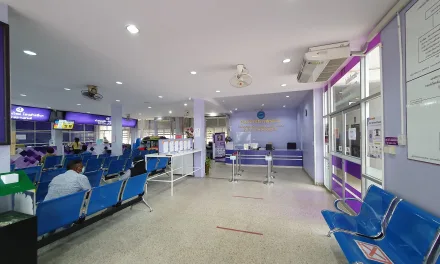Looking for a reliable property manager in Phuket? Whether you own a villa, condo, or holiday home, professional management ensures your investment is well cared for and profitable. From tenant screening and guest check-ins to maintenance, bill payments, and legal compliance, the right property manager in Phuket takes the stress out of ownership and maximises your rental returns.
Table of Contents
Why Property Management Matters in Phuket
Phuket has long been one of Asia’s most attractive property destinations. Investors, expats, and second-home buyers are drawn here for the lifestyle, steady tourism, and strong rental demand. But while buying a property may feel like the exciting part, the real work begins afterwards: managing it.
For owners who don’t live in Phuket year-round, the challenges add up quickly. Finding reliable tenants, dealing with guest requests at odd hours, and making sure the pool pump doesn’t break in peak season can turn what should be a passive investment into a full-time job.

This is where property management companies come in. The right manager isn’t just a caretaker — they’re your partner in protecting the value of your asset, keeping tenants happy, and ensuring your property runs like a business. Done well, property management can mean the difference between steady rental income and constant headaches.
A few common examples:
- The Holiday Home Owner: You only use your villa a few weeks a year, but you’d like it rented out the rest of the time. A property manager can market the property, handle guest check-ins, and make sure it’s spotless before you return.
- The Investor: You’ve bought multiple condos as rental units. Instead of coordinating cleaners and chasing payments yourself, a manager takes care of tenant screening, maintenance, and monthly reporting.
- The Long-Term Resident Abroad: Maybe you’re relocating for a few years but want to hold onto your Phuket home. A manager ensures the house is maintained, bills are paid, and the property doesn’t fall into disrepair while you’re away.
Each of these situations requires a different level of service, but in every case, having the right manager saves you time, stress, and unexpected costs.
What Does a Property Manager in Phuket Do?
At its core, a property manager’s job is to make ownership as hands-off as possible for you. The exact scope of work varies, but most reputable companies in Phuket will cover these key areas:
1. Marketing & Rentals
They’ll photograph your property, list it on platforms like Airbnb or Booking.com, and handle inquiries. For long-term rentals, this means screening tenants, drafting contracts, and managing move-ins and move-outs.
2. Maintenance & Repairs
From arranging weekly cleaners and pool technicians to coordinating emergency plumbing or electrical fixes, a property manager is your first line of defense against wear and tear. Many also oversee regular gardening and pest control.
3. Bills & Payments
Managers typically collect rent on your behalf, pay utilities, and settle recurring government fees such as common area charges or house registration obligations. This keeps your property running smoothly without you needing to track every invoice.
4. Legal & Compliance
Thailand has specific rules for landlords and foreign owners, including TM30 reporting for guests and income tax filings. A good manager understands these requirements and ensures you stay compliant.
5. Reporting & Communication
Clear reporting is one of the most valuable services. Most companies will send monthly financial statements, booking updates, and maintenance reports so you know exactly how your property is performing.
Not every manager offers the same mix of services. Some specialize in short-term holiday rentals, focusing on maximizing occupancy and guest satisfaction. Others lean toward long-term tenants, where stability and steady income are the priorities. A handful do both, giving owners more flexibility.

Key Things to Consider When Choosing a Property Manager
1. Services Offered
Not all property managers in Phuket provide the same level of service. Some operate more like rental agents — they’ll find you a tenant, collect a fee, and then disappear. That may work for a quick rental, but it’s not true property management.
A proper management company should cover the ongoing responsibilities that protect your property and keep tenants (or guests) happy. This includes marketing, maintenance, bill payments, legal compliance, and regular reporting.
The type of service you need depends on your goals:
- Short-term rental focus (Airbnb, Booking.com): Managers here act almost like hotel operators, handling constant guest turnover, cleaning, and guest communication.
- Long-term rental focus: The priority is stability — finding reliable tenants, ensuring lease compliance, and maintaining the property over time.
- Caretaking only: For owners who don’t want to rent, some managers simply check in on the property, pay bills, and coordinate maintenance while it sits empty.
If you’re not based in Phuket year-round, this distinction is critical. A “finder’s fee” agent who just secures a tenant won’t be much help when the air-conditioning breaks in the middle of rainy season. A real property manager takes ownership of those ongoing issues — so you don’t have to.
Fees & Commission
Understanding the cost structure is essential before you sign with a manager. In Phuket, fees typically fall into a few categories:
- Short-term rentals: Most companies take 15–30% commission from each booking. This covers guest management, cleaning coordination, and marketing across platforms.
- Long-term rentals: Commission is usually lower, around 8–15% of the monthly rent. However, be careful — many “agents” in Phuket only charge a one-time fee, often equal to one month’s rent for a 12-month lease. In that case, they’re not managing your property; they’re simply introducing the tenant and moving on. Ongoing issues, from repairs to late payments, are left for you to handle.
- Caretaking only: If you don’t plan to rent your property out, some managers charge a flat monthly fee. This typically includes regular check-ins, paying bills, and arranging maintenance so the property stays in good condition while vacant.
Pro tip: Always ask for a clear breakdown of what’s included in the fee. Some managers bundle cleaning and maintenance into their commission, while others bill it separately. Knowing this upfront avoids surprises and helps you compare companies fairly.
Agent vs. Property Manager: What’s the Difference?
| Agent 🧑💼 | Property Manager 🏡 | |
| Main role | Finds a tenant | Manages the property long-term |
| Fee structure | One-time fee (often 1 month’s rent for a year lease) | Ongoing commission (8–30%) or monthly fee |
| Ongoing support | Usually none, unless paid extra | Handles maintenance, tenant issues, and bills |
| Best for | Owners who want to self-manage after tenant move-in | Owners who live abroad or want a hands-off investment |

Local Network & Reliability
In Phuket, things don’t always run on schedule. A reliable property manager with a strong local network can make the difference between a small hiccup and a major headache.
The best managers have trusted cleaners, gardeners, pool technicians, and contractors they can call on quickly. They know who will actually show up during rainy season, who charges fairly, and who can be relied on in an emergency.
Equally important is their reputation with other property owners. A company that has been operating for years, with consistent reviews and word-of-mouth recommendations, is far less risky than a brand-new operator offering rock-bottom fees.
Example: One villa owner I spoke with hired an “independent” agent who promised to look after everything while they were abroad. When the air-conditioning system broke down during high season, the agent had no reliable contractor to call. Guests left bad reviews, the property sat empty for weeks, and repairs ended up costing far more than they should have. The owner eventually switched to a professional management company — one with established contacts who could solve problems within hours, not weeks.
When evaluating managers, ask direct questions:
- Who are your go-to contractors?
- How quickly can you respond to emergencies?
- Can you provide references from other owners?
A well-connected, reliable manager isn’t just fixing problems — they’re preventing them.
Transparency & Reporting
When you hand over the keys to your property, you also hand over trust. A professional manager should make it easy for you to see exactly what’s happening — financially and operationally.
At minimum, you should expect:
- Monthly statements showing rental income, expenses, and management fees.
- Clear invoices for maintenance or repairs, with receipts attached.
- Booking reports if your property is on platforms like Airbnb, showing occupancy and average nightly rates.
- Regular updates by email, WhatsApp, or through an online owner’s portal.
Without proper reporting, it’s impossible to know if your property is performing as promised. Some owners only discover problems months later — like unpaid utility bills or inflated repair charges — because their manager wasn’t transparent.
Pro tip: Before signing, ask to see a sample report. A serious property management company will already have templates they use with other owners. If a manager hesitates or says, “Don’t worry, we’ll let you know if something comes up,” that’s a red flag.
Clear reporting isn’t just about numbers; it’s about accountability. The best managers treat your property like a business, and they should be willing to show you the books.
Legal Knowledge
Thailand has unique rules around property ownership and rentals, and overlooking them can be costly. A good property manager should not only know these regulations but actively handle them on your behalf.
Some key areas include:
- TM30 reporting: By law, landlords must report every foreign guest staying in their property to Thai immigration. Failure to do so can result in fines. Professional managers file this automatically.
- Rental tax filings: Income from rentals in Thailand is taxable, and it’s the owner’s responsibility to declare it. A property manager can prepare the paperwork or connect you with a trusted accountant.
- Condo and villa rules: Many developments have restrictions on short-term rentals, especially condos. A manager should advise you upfront if your unit can legally be rented on Airbnb or not.
- Lease agreements: Contracts need to be in line with Thai law. A proper manager will have vetted templates that protect both owner and tenant.
Why it matters: Too often, owners assume these details will be handled — only to discover they’ve unknowingly broken the law. One common mistake is renting out a condo short-term in a building where it’s prohibited. This can lead to fines or disputes with the juristic office.
When interviewing managers, don’t hesitate to ask:
- Do you handle TM30 reporting?
- How do you assist with taxes?
- Are you familiar with short-term rental rules in my building/area?
If they can’t answer confidently, it’s a sign to keep looking.
Personal Fit
At the end of the day, property management is a partnership. You’re trusting someone with one of your biggest assets, so it’s important that the relationship feels right.
A good manager should be responsive, straightforward, and easy to communicate with. If they dodge questions, take days to reply, or seem more interested in their commission than your concerns, those are warning signs.
Equally, you should feel comfortable with their style of working. Some owners prefer detailed weekly updates; others are happy with a simple monthly statement. The best managers will adapt to your needs rather than forcing you into a one-size-fits-all system.
Example: One owner I spoke with interviewed three different companies. Two gave generic sales pitches; the third took the time to visit the villa, ask about the owner’s goals, and explain their approach to both long- and short-term rentals. That personal effort made the choice obvious.
Tip: Before signing, have a face-to-face meeting (or video call if you’re abroad). Ask yourself: Would I trust this person to deal with problems in my absence? If the answer is no, keep looking.
A property manager isn’t just a service provider — they’re the person standing between you and sleepless nights when something goes wrong. Choosing someone you genuinely trust will pay dividends in the long run.
Red Flags to Watch Out For
While many property managers in Phuket are professional and trustworthy, there are a few warning signs that should make you cautious:
- No clear contract or hidden fees
If the agreement is vague, or if you discover extra charges buried in the fine print, walk away. A proper manager will put everything in writing and be upfront about costs. - Slow communication or vague answers
If it takes days to get a reply when you’re just asking questions, imagine what it will be like when something urgent happens at your property. - Poor online reviews or lack of references
A reputable company should be able to provide references from other owners. If you can’t find any trace of them online, or reviews are consistently negative, that’s a red flag. - Over-promising results
Be wary of anyone guaranteeing occupancy rates (“95% year-round bookings”) or inflated rental income. The Phuket market is seasonal, and no manager can promise unrealistic returns. - Not licensed or experienced with foreigners
Property management in Phuket often involves dealing with non-resident owners and international guests. If the company doesn’t have experience here — or worse, if they’re not licensed — you may run into legal or practical issues later.

Bottom line: Trust your instincts. If something feels off during your first conversations with a potential manager, it’s usually a sign to keep looking.
Quick Summary: Do’s & Don’ts When Choosing a Property Manager
✅ Do’s
- Compare at least 2–3 companies before signing.
- Ask for a full breakdown of fees and services.
- Request sample reports and references from other owners.
- Match the service type (short-term, long-term, caretaking) to your property goals.
- Ensure the company handles legal requirements like TM30 and taxes.
❌ Don’ts
- Don’t rely on an “agent” who only finds a tenant and disappears.
- Don’t sign vague contracts without clear terms.
- Don’t ignore red flags like slow communication or hidden costs.
- Don’t believe unrealistic promises of occupancy or guaranteed income.
- Don’t choose a company you don’t personally feel comfortable with.
The Top Property Management Companies in Phuket
Here’s our curated list of leading property management firms in Phuket. Each has its own strengths, from boutique villa specialists to large-scale agencies.
Top Property Management Companies in Phuket
Here are some of the leading property managers on the island. Each offers a different style of service — from boutique villa specialists to large international firms.
Inter Property Phuket
One of the fastest-growing vacation rental managers in Phuket, Inter Property handles a large portfolio of villas and holiday homes. Known for maximizing Airbnb and short-term rental returns through dynamic pricing, guest communication, and 24/7 support.
🔗 Website
Blink n Sun
A boutique property manager in South Phuket, Blink n Sun focuses on luxury villas in areas like Rawai and Nai Harn. They offer concierge-style service for both owners and guests, with excellent online reviews and a reputation for premium care.
🔗 Website
Lofty Phuket
Well-known for its short-term rental management, Lofty handles everything from marketing and guest vetting to cleaning and maintenance. Their promise is a “no headaches” experience — owners simply receive their income while Lofty manages the details.
🔗 Website
Brown Starling
Linked to the villa developer Two Villas, Brown Starling has long roots in Phuket’s rental market. They manage a large inventory of villas, particularly in Rawai and Nai Harn, and are known for consistent bookings and reliable upkeep.
🔗 Website
Elite Havens (Thailand)
The regional leader in ultra-luxury villa rentals, Elite Havens manages a portfolio of exclusive villas with full staffing and concierge service. Their brand reach and prestige make them a top choice for high-end owners.
🔗 Website
Knight Frank Phuket
The Phuket branch of global real estate firm Knight Frank manages luxury villas and estates, especially on the northwest coast. With the largest in-house team on the island, they deliver comprehensive services from rentals to landscaping.
🔗 Website
CBRE Phuket
Another international real estate name, CBRE provides villa and condo management in Phuket. They focus on high-end properties, combining local service with global marketing reach and professional standards.
🔗 Website
Company Vauban
A long-established agency with French roots, Vauban offers flexible rental management packages tailored to owner needs. They manage both condos and villas, handling everything from holiday lets to long-term tenancies.
🔗 Website
Holy Cow Phuket
Founded in 2017, Holy Cow has grown quickly and now manages over 100 villas and condos. Known for transparency and tech-driven systems, they give owners online dashboards to track bookings while handling all guest and property care.
🔗 Website
Other Notable Companies
Beyond the major players, there are several smaller or specialist firms worth mentioning:
- HoliPlanet – Developer-linked rental company offering holiday homes with hotel-style services.
- Prosper Hospitality (Prosper Vacay) – A newer hospitality-focused manager expanding into Phuket’s short-term rental market.
- DAS – Another growing operator providing vacation rental management services on the island.
- Alexander’s Property Management – Operating since 2008, focused on both expat landlords and holiday rental owners.
- HomeCare (HCR) Management – Long-standing local team providing rental and caretaking services.
These companies may have smaller portfolios but often provide personalized service or unique strengths depending on the property type and location.
Questions to Ask Before Hiring a Property Manager
When you meet with a potential manager, here are some key questions that can reveal a lot about their professionalism:
- Services: Do you handle short-term rentals, long-term tenants, or both?
- Fees: What exactly is included in your commission or monthly fee? Are there any extra charges I should expect?
- Reporting: Can you show me a sample monthly report or financial statement?
- Network: Who are your go-to contractors for maintenance and repairs?
- Legal: Do you handle TM30 reporting and assist with rental tax filings?
- Experience: How long have you been operating in Phuket, and can you provide references from other property owners?
- Communication: How quickly can I expect a response if something urgent happens?
- Flexibility: Can you tailor your service to my needs (for example, more detailed reporting, or caretaking only)?
- Restrictions: Are there any legal or building restrictions that would limit my ability to rent out this property?
- Exit terms: If I’m not happy, what’s the notice period to end the contract?
Asking these upfront makes it much easier to separate true professionals from part-time operators.
Final Tips & Next Steps
Choosing the right property manager is one of the most important decisions for any Phuket property owner. Don’t rush the process, compare at least a few companies, check references, and make sure their services align with your goals. A little research upfront can save you a lot of stress (and money) later.
Remember: the best managers are transparent, proactive, and treat your property as if it were their own.
💡 Are you a property manager in Phuket?
We’re always updating this guide to keep it useful for property owners. If you’d like your company featured, get in touch with the Phuket Community team.





